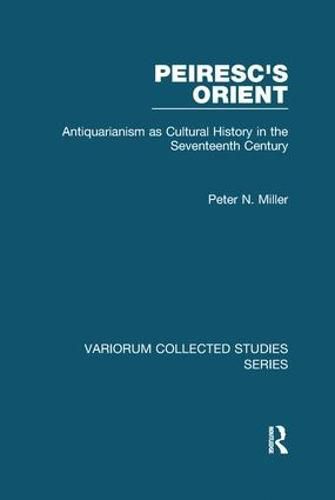Readings Newsletter
Become a Readings Member to make your shopping experience even easier.
Sign in or sign up for free!
You’re not far away from qualifying for FREE standard shipping within Australia
You’ve qualified for FREE standard shipping within Australia
The cart is loading…






The ten essays published in this volume were written over the space of a decade, but they were conceived from the start as a coherent whole, presenting Peiresc’s study of discrete languages and literatures of the Near East and North Africa. For Peiresc the student of the Classical past, this described the eastern and southern space in which the Greeks and Romans lived and strove. For Peiresc the Christian, this was the world of the Bible that impacted upon the Greeks and Romans. And for Peiresc of the Mediterranean (for he was born in Aix, spent much time in Marseille, and lived outside of the region for only 6 of his 57 years), this was the territory that his friends and colleagues sailed to, lived in and, usually, came back from. The convergence of these axes in the life of one man, and a man of singular intellectual power and charm whose vast personal paper arsenal had survived, makes this such a compelling project.
The essays are arranged in a roughly chronological order. They follow the course of Peiresc’s own projects from his early encounter with the ancient Near East in Greek and Roman literature, through his engagement with Arabic to his deepening kowledge of rabbinic texts to the wider world of the new oriental studies of the seventeenth century which he helped create: Samaritan, Coptic and Ethiopic.
$9.00 standard shipping within Australia
FREE standard shipping within Australia for orders over $100.00
Express & International shipping calculated at checkout
The ten essays published in this volume were written over the space of a decade, but they were conceived from the start as a coherent whole, presenting Peiresc’s study of discrete languages and literatures of the Near East and North Africa. For Peiresc the student of the Classical past, this described the eastern and southern space in which the Greeks and Romans lived and strove. For Peiresc the Christian, this was the world of the Bible that impacted upon the Greeks and Romans. And for Peiresc of the Mediterranean (for he was born in Aix, spent much time in Marseille, and lived outside of the region for only 6 of his 57 years), this was the territory that his friends and colleagues sailed to, lived in and, usually, came back from. The convergence of these axes in the life of one man, and a man of singular intellectual power and charm whose vast personal paper arsenal had survived, makes this such a compelling project.
The essays are arranged in a roughly chronological order. They follow the course of Peiresc’s own projects from his early encounter with the ancient Near East in Greek and Roman literature, through his engagement with Arabic to his deepening kowledge of rabbinic texts to the wider world of the new oriental studies of the seventeenth century which he helped create: Samaritan, Coptic and Ethiopic.